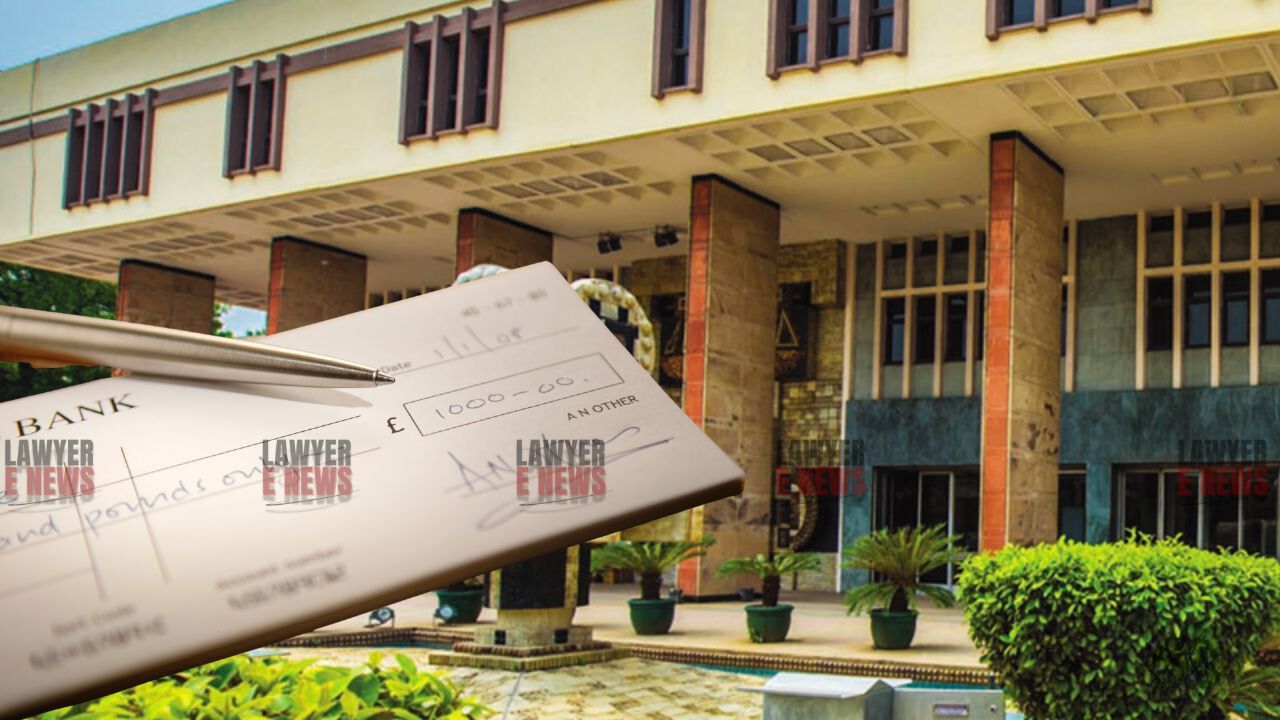-
by Admin
15 February 2026 5:01 PM



Delhi High Court, presided over by Justice Subramonium Prasad, dismissed a petition in Seema Devi vs. Suresh Kumar, affirming the acquittal of Suresh Kumar in a cheque bounce case. The petition had been filed by Seema Devi, challenging a lower court’s decision which found that Kumar had successfully rebutted the presumption of liability under Section 138 of the Negotiable Instruments Act (NI Act). This ruling reinforces the principles around presumption of debt and the requirements to rebut such presumptions in cheque-related disputes.
Seema Devi, the complainant, alleged that Suresh Kumar had requested a friendly loan of ₹6,00,000 in January 2015 to purchase a property. Devi stated that the loan was given in cash and was meant to be repaid within six months. When Kumar failed to repay, he allegedly issued a cheque for ₹6,00,000 dated March 11, 2017. This cheque was subsequently dishonored due to insufficient funds when presented by Devi. Following a statutory demand notice that Kumar failed to satisfy, Devi filed a complaint under Section 138 of the NI Act, initiating criminal proceedings.
In April 2024, the Metropolitan Magistrate’s court acquitted Kumar, finding his defence to be credible. Devi then filed a petition in the Delhi High Court, seeking to overturn this acquittal.
Presumption of Liability: Section 139 of the NI Act creates a presumption that a cheque issued is for the discharge of debt. Devi argued that Kumar’s admission of the cheque being drawn on his account should invoke this presumption in her favor.
Rebuttal of Presumption: The Magistrate’s court had accepted Kumar's defence based on multiple factors, including Devi’s financial incapacity to lend ₹6,00,000 and the circumstances surrounding the cheque issuance. Kumar contended that the cheque in question was originally issued to a third party, Surender Kumar, in 2012 as a security for a different transaction, negating its link to any debt owed to Devi.
Justice Subramonium Prasad upheld the Magistrate's decision, noting that the lower court’s evaluation of evidence was neither “perverse” nor erroneous. The judge stated that, under Section 139, the presumption of liability is indeed rebuttable, and the standard for rebuttal is based on “preponderance of probabilities.” Key observations included:
Financial Capacity of the Complainant: Devi had testified that her household income and savings were limited, and the substantial loan to Kumar appeared unlikely without any supporting evidence of such financial capacity. Additionally, her failure to call key witnesses, such as her husband, further weakened her case.
Chronology and Authenticity of the Cheque: Kumar’s defence that the cheque, originally issued to Surender Kumar in 2012, was reused in 2017 added to the doubt. Bank records corroborated his account, showing that similar cheques in sequence were used by Kumar in 2012. This detail raised legitimate questions about why a cheque from 2012 would be used for a 2017 transaction.
No Evidence of Wrongful Possession of the Cheque: Devi did not provide evidence that Kumar had wrongfully regained possession of the cheque or manipulated it to evade payment obligations, leaving her claim unsubstantiated.
Justice Prasad cited precedents, including Basalingappa v. Mudibasappa (2019), where the Supreme Court elaborated on the evidentiary burden required to rebut presumptions under Section 139. The court reiterated that the accused could use circumstantial evidence or even material presented by the complainant to establish a probable defence. The ruling reinforced that acquittal based on the preponderance of probabilities does not necessitate proof beyond a reasonable doubt.
The Delhi High Court dismissed Devi’s petition, agreeing with the trial court’s findings that Kumar had successfully rebutted the presumption under Section 139. The judgment underscores that while Section 138 mandates a presumption of debt when a cheque is dishonored, this presumption can be effectively countered if the accused presents a credible defence, even when relying on probabilities rather than conclusive proof.
Date of Decision: October 29, 2024
